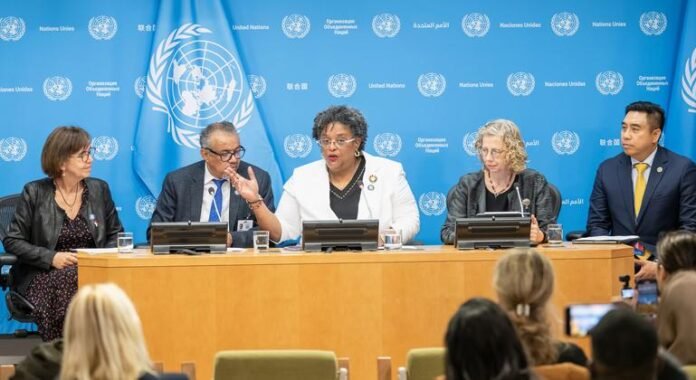Antimicrobial resistance/AMR is an invisible deadly threat that is directly responsible for 1.3 million deaths each year and causes another 5 million deaths in some way.
But, there are many measures available to combat this threat, ranging from cleanliness and hygiene to vaccination.
The manifesto passed on Thursday also identified key solutions to address these challenges, along with setting targets. This includes reducing deaths due to antimicrobial resistance by 10 percent by 2030.
Additionally, a call has been made to ensure funding in this area at the national level to support AMR-focused plans in at least 60 percent of countries by 2030.
Philemon Young, president of the 79th session of the UN General Assembly, described antimicrobial resistance as the greatest threat of our time and said AMR is not only a global health crisis, but also a development problem.
Antimicrobial drugs, from antibiotics to antivirals, prove effective in saving millions of lives every day. But it is possible that one day these drugs may stop working.
When antimicrobial drugs stop being effective against microorganisms such as bacteria, viruses, fungi and parasites, the situation of antimicrobial resistance (AMR) arises.
The head of the General Assembly noted that this is very important from the point of view of our ability to treat diseases that occur in humans, animals and plants. Also, for food safety and security, nutrition, economic development, equity and environmental protection.
World Health Organization (WHO) Director-General Tedros Adhanom Ghebreyesus noted that Alexander Fleming, the discoverer of penicillin, warned of the dangers of AMR in his 1945 Nobel Prize-winning speech.
Threats to health, development
AMR poses a major threat to health and development, potentially reversing decades of medical progress, the UN agency chief said.
Dr Tedros said this is not an imaginary future, it has already arrived and no country is immune to this danger. The burden will be greater in low- and middle-income countries, where only a small number of new and effective antibiotics are being researched.
The head of the organization said that most countries have made progress since the first major meeting in 2016, but more steps need to be taken, and funding must be put in place, so that this challenge can be overcome in time.
He described the declaration passed on Thursday as the first step in a global action plan, which could be implemented by 2026.
Moral imperatives
UN Deputy Secretary-General Amina Mohammed said AMR is a complex and existential challenge and ranks among the top 10 threats to global health and development. It causes more than 13 lakh deaths every year.
The Deputy General Secretary said, these are not just numbers. They represent lives that have ended, families that have been destroyed and futures that have been stolen.
A senior UN official said the crisis is costing the world $800 billion a year in health care costs and reduced work productivity, and is jeopardizing medical advances.
He said tackling AMR was a moral imperative.

